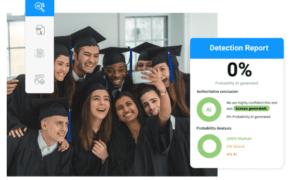Are you fascinated by the world of research and have a knack for uncovering hidden gems of information? Are you looking to break free from the confinements of traditional office life and venture into the exciting realm of freelance research? Well, look no further. In this blog post, we will dissect the essential skills needed to thrive as a successful freelance researcher. From sniffing out reliable sources to mastering advanced search techniques, join us on this journey as we unravel the secrets behind becoming an indispensable resource in today’s knowledge-driven economy. Whether you’re already freelancing or considering it as your next career move, get ready to equip yourself with the tools that will set you apart from the competition and catapult your success in this increasingly digital era.
What is a Freelance Researcher?
A freelance researcher is someone who is self-employed and contracted to carry out research on behalf of another organization or individual. The work can be varied, from conducting market research to writing academic papers, and can be done either remotely or in person.
To be a successful freelance researcher, you need to have strong research skills and be able to work independently. You also need to be able to manage your time effectively and meet deadlines. Good communication skills are also important, as you will often need to liaise with clients and keep them updated on your progress.
The Skillset Required of a Freelance Researcher
There are a few key skills that every successful freelance researcher needs in order to be successful. Firstly, they need to be able to find and access the right sources of information. This means having good research skills and knowing how to use search engines effectively. They also need to be able to evaluate information and determine which is relevant and reliable. Secondly, they need to be able to communicate effectively with clients in order to understand their needs and requirements. This includes being able to write clear and concise reports. They need to be organized and have good time management skills in order to meet deadlines.
Research Strategies for Freelancers
Whether you’re a seasoned freelancer or just getting started, research is a critical component of success. And while there are a variety of ways to conduct research, not all methods are created equal. As a freelancer, it’s important to use efficient and effective research strategies that will save you time and help you get the results you need.
Some great research strategies for freelancers include using online tools and resources, leveraging your network, and utilizing social media.
Online tools and resources are a great way to quickly gather data and information. Use search engines like Google and Bing, as well as specific databases and online directories that pertain to your industry or niche. When conducting research online, be sure to use keywords relevant to what you’re looking for – this will help ensure that you get the most accurate and relevant results possible.
Leveraging your network is another excellent way to conduct research as a freelancer. Talk to friends, family, peers, colleagues, and other professionals in your field to see what they know or can recommend. This can be an especially helpful strategy if you’re trying to gather insights or information about a specific company or industry.
Don’t forget about the power of social media. Social media platforms like Twitter, LinkedIn, and Facebook can be great places to find data, connections, and leads. Use hashtags and keywords to search for relevant information on social media sites – you may be surprised by the valuable resources and insights you uncover.
Finally, don’t forget about traditional research methods. Attend conferences, trade shows, and other industry events to meet people and learn more about your profession or niche. Read articles, magazines, books, and other publications related to your area of expertise. These are all tried-and-true research strategies that can provide you with valuable insights.
No matter what kind of freelancer you’re working as – whether it’s a blog writer, web developer, or designer – knowing how to conduct research in an efficient and effective way is essential for success. By using online tools and resources, leveraging your network, utilizing social media platforms, and making use of traditional research methods like attending events or reading industry publications, you can gain invaluable knowledge that will help you in your business endeavors.
Tools Needed for Successful Research
In order to be a successful freelance researcher, you will need a few key tools. First, you will need access to quality research databases. Some of the best research databases for freelancers are EBSCOhost, ProQuest, and JSTOR. Additionally, you will need to be proficient in using search engines such as Google and Bing. It is also helpful to have a strong understanding of how to use social media platforms such as Twitter and LinkedIn for research purposes.
Tips and Tricks for Being an Effective and Efficient Freelancer
As a freelancer, your time is precious. You need to be efficient and effective in order to make the most of your limited time and resources. Here are some tips and tricks for being an effective and efficient freelance researcher:
1. Be organized. Keep track of your projects, deadlines, and research material in a central location. This will help you stay on top of your work and avoid missing any important details.
2. Set aside dedicated time for research. Whether it’s an hour each day or a few hours each week, carve out some time in your schedule that is devoted solely to research. This will help you focus and get the most out of your research time.
3. Utilize online resources. There are a wealth of online resources available to researchers these days, so take advantage of them! Use online databases, Google Scholar, social media, and more to help you find the information you need quickly and easily.
4. Stay up to date on industry news. In order to be an effective researcher, you need to be aware of what’s going on in your industry. Subscribe to relevant blogs, read trade publications, and follow key figures on social media to stay up-to-date on the latest news and trends in your field.
5. Develop strong search skills. Learning how to effectively search for information is a critical skill for any researcher. Practice using different search engines and Boolean operators to hone your search
Examples of Valuable Research Findings
As a freelance researcher, it is your job to find information that is valuable to your clients. This can be anything from market research to finding the contact information for a difficult-to-reach client. Whatever the project, your success as a freelancer will be defined by your ability to find the right information quickly and efficiently.
To help you hone your skills as a researcher, we’ve put together a list of examples of valuable research findings. These should give you an idea of what kind of information your clients may be looking for, and how you can go about finding it:
1. Contact information for hard-to-reach clients: This is often one of the most valuable pieces of information a researcher can provide. If your client is trying to get in touch with someone who is difficult to reach, you may be able to track down their contact details and make the connection possible.
2. Competitive analysis: If your client is looking to enter a new market or launch a new product, they’ll need to know what their competition is up to. As a researcher, you can help them gather this important information so they can make informed decisions about their business strategies.
3. Market research: Before entering any new market, it’s essential to do your homework and understand the needs of potential customers. As a researcher, you can conduct primary or secondary research to gather this type of crucial intelligence.
4. Social media insights: In today’s digital world, it’s important to understand how people are responding to your client’s products and services. As a researcher, you can use social listening tools to track mentions, likes, shares, and comments related to your client’s brand.
5. Historical data: Nothing is more valuable than having access to historical data. Knowing what has happened in the past can give your clients a better understanding of where they should focus their efforts in the future. As a researcher, you can help them unlock this important information.
These are just a few examples of valuable research findings that you can provide as a freelancer. With the right skills and dedication, you’ll be sure to find success in the field of research. Good luck!
Conclusion
In this article, we explored the diverse skillset of a freelance researcher and how these can help you make a successful career in research. It’s important to remember that success doesn’t come easy and takes practice and dedication. It also helps to stay organized while managing both short-term projects as well as long-term goals. With the right mix of experience in research methods, data analysis, writing, reporting, networking and life balance – you could have all the necessary tools for success as a freelance researcher.



































